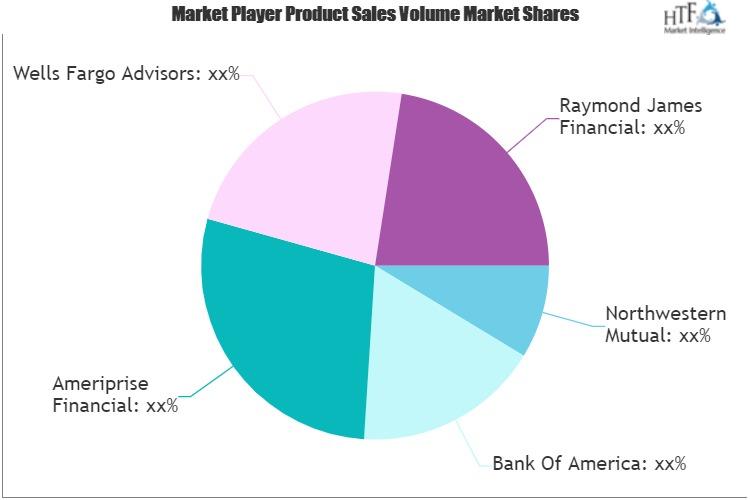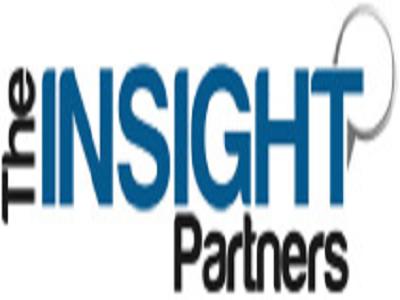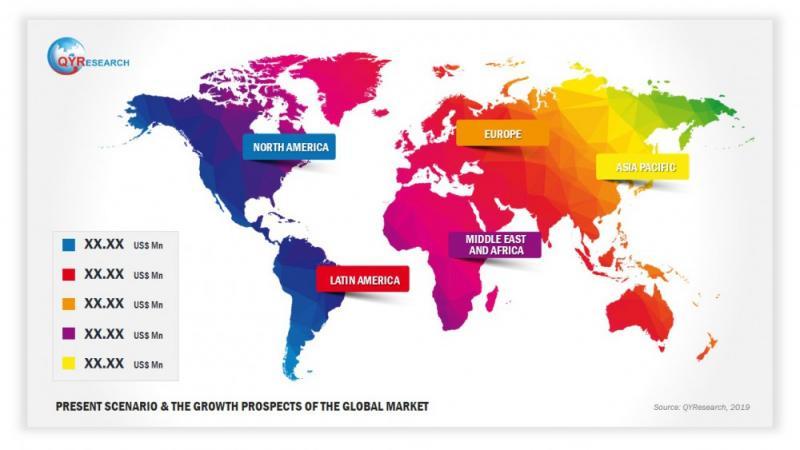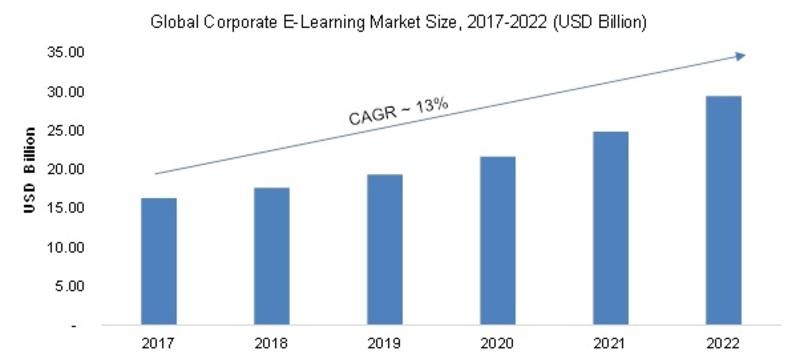Press release
Medication Adherence Market to Reach USD 16.46 Billion by 2032 with a Robust 15.5% CAGR | SkyQuest Technology
The medication adherence market is experiencing significant growth, driven by increasing awareness of the importance of adhering to prescribed treatments, technological advancements, and rising healthcare costs. Medication adherence refers to the extent to which patients take their medications as prescribed by healthcare professionals. Non-adherence remains a persistent challenge in healthcare, leading to worsened health outcomes and increased medical costs. In response, there has been a rise in innovative solutions aimed at improving patient adherence, ranging from digital health tools to patient support programs.
The global medication adherence market was valued at USD 5.2 billion in 2024 and is expected to grow at a CAGR of 15.5% from 2025 to 2032, reaching an estimated value of USD 16.46 billion by the end of the forecast period. This rapid growth is primarily attributed to the increasing burden of chronic diseases, advancements in healthcare technologies, and the adoption of solutions that enhance medication compliance and outcomes.
Get a Free Sample Copy - https://www.skyquestt.com/sample-request/medication-adherence-market
Key drivers contributing to this growth include the rising prevalence of conditions such as diabetes, hypertension, cardiovascular diseases, and mental health disorders. With these conditions requiring long-term medication, ensuring patient adherence is critical to managing these diseases effectively. Furthermore, an aging global population with multiple health issues necessitates better adherence management to avoid complications and hospitalizations.
Key Factors Driving Growth
1. Technological Advancements: The integration of digital health technologies such as mobile apps, medication reminder systems, and smart pill dispensers has revolutionized the medication adherence landscape. These tools are designed to remind patients to take their medication at the right time and in the correct dosage, often providing real-time alerts to caregivers or healthcare providers. The rise of telemedicine and virtual consultations, especially in the wake of the COVID-19 pandemic, has also boosted medication adherence efforts. As patients access healthcare remotely, maintaining regular communication and adherence to prescribed treatments becomes easier through digital platforms.
2. Government Initiatives and Healthcare Reforms: Various governments and regulatory bodies are promoting initiatives to reduce medication non-adherence, which is estimated to account for a substantial portion of healthcare expenditures globally. Policies aimed at improving patient education, enhancing healthcare access, and offering incentives to organizations that focus on improving patient outcomes are contributing to the growth of the medication adherence market.
3. Rise in Chronic Diseases: The prevalence of chronic conditions such as diabetes, asthma, and heart disease is on the rise globally. According to the World Health Organization (WHO), chronic diseases are responsible for approximately 70% of global deaths. Managing these conditions requires consistent medication, making adherence a critical factor in improving health outcomes and reducing hospitalizations. The increasing global burden of such diseases has consequently propelled the demand for medication adherence solutions.
4. Aging Population: As the global population ages, the incidence of chronic diseases increases, leading to greater reliance on medications for disease management. Older adults are often more likely to experience difficulty in managing their medication regimens due to cognitive decline, physical limitations, or a lack of understanding of their prescribed treatments. Medication adherence solutions tailored to this demographic, such as reminder apps, personalized care plans, and patient education, are anticipated to drive market growth.
Make an Inquiry to Address your Specific Business Needs - https://www.skyquestt.com/speak-with-analyst/medication-adherence-market
Market Segmentation
1. By Product Type
- Medication Adherence Packaging: Blister packs, pre-filled syringes, and medication bottles designed to simplify the process for patients.
- Medication Reminders and Monitoring Systems: Includes mobile apps, smart pill dispensers, and automated medication management systems.
- Other Solutions: Includes services provided by healthcare providers or pharmaceutical companies, such as patient education and counseling.
2. By Application
- Chronic Diseases: The largest segment, as patients with chronic conditions require lifelong adherence to manage symptoms effectively.
- Mental Health: Medication adherence solutions for conditions like depression, anxiety, and schizophrenia are becoming increasingly essential.
- Others: This category includes acute diseases and post-operative care.
3. By End-User
- Hospitals & Clinics: Healthcare institutions are increasingly adopting medication adherence solutions to ensure patient compliance with treatment plans.
- Homecare: With the rise of home healthcare services, patients are using medication adherence tools to manage their treatments independently.
- Pharmacies & Retail Stores: Pharmacists are incorporating medication adherence tools to aid patients in following prescription regimens.
Regional Insights
- North America dominates the medication adherence market, driven by the well-established healthcare infrastructure, high prevalence of chronic diseases, and strong government initiatives aimed at improving healthcare outcomes. The U.S. is expected to remain a key market player, supported by the presence of major pharmaceutical companies and healthcare technology innovators.
- Europe follows closely behind, with significant contributions from countries such as Germany, the UK, and France. These regions are witnessing strong adoption of digital health technologies and an increase in government-funded programs to improve medication adherence.
- Asia-Pacific is expected to show the highest growth rate over the forecast period. This can be attributed to the rising healthcare needs of large populations, rapid urbanization, and increasing awareness of the importance of medication adherence, especially in countries like China, India, and Japan.
Take Action Now: Secure Your Medication Adherence Market Today - https://www.skyquestt.com/buy-now/medication-adherence-market
Challenges and Barriers
While the market shows promising growth, several challenges hinder its expansion:
- Cost of Advanced Technologies: Many advanced medication adherence solutions, such as smart pill bottles or monitoring systems, remain expensive, limiting their widespread adoption, especially in low-income countries.
- Patient Privacy and Data Security: As medication adherence solutions increasingly rely on digital platforms, concerns about data security and patient privacy must be addressed to ensure user trust and compliance.
- Patient Behavior: Non-adherence to medication is often a result of behavioral factors such as forgetfulness, confusion, or lack of motivation, which may not always be easily addressed by technology alone.
Top Players in Medication Adherence Market
Omnicell, Inc. (United States)
Koninklijke Philips N.V. (Netherlands)
Medtronic plc (Ireland)
McKesson Corporation (United States)
Cerner Corporation (United States)
Becton, Dickinson and Company (United States)
Johnson & Johnson Services, Inc. (United States)
Novartis International AG (Switzerland)
Siemens Healthineers AG (Germany)
AdhereTech Inc. (United States)
SMRxT Inc. (United States)
Pillsy Inc. (United States)
TruMed Systems Inc. (United States)
Proteus Digital Health (United States)
Allscripts Healthcare Solutions, Inc. (United States)
MedMinder (United States)
Caredose (United States)
PHC Holdings Corporation (Japan)
Kakehashi Inc. (Japan)
Future Outlook
The future of the medication adherence market looks bright, with significant opportunities driven by technological innovation, an aging global population, and the growing prevalence of chronic diseases. The development of AI-driven medication management systems, personalized treatment plans, and predictive analytics are expected to further streamline patient adherence and improve health outcomes.
Additionally, pharmaceutical companies, healthcare providers, and technology firms are likely to collaborate to create comprehensive solutions that not only promote medication adherence but also support patient education and engagement, resulting in improved treatment outcomes and reduced healthcare costs.
Read Medication Adherence Market Report Today - https://www.skyquestt.com/report/medication-adherence-market
The medication adherence market is poised for substantial growth over the next decade. With increasing investments in digital health solutions, the rise of chronic diseases, and evolving healthcare policies, the market is expected to expand rapidly. However, addressing challenges such as cost, data security, and patient behavior will be essential to ensuring widespread adoption and maximizing the impact of these solutions. As healthcare systems around the world focus on improving patient outcomes, the medication adherence market will play a pivotal role in achieving long-term health improvements globally.
Browse More Research -
Fast Food Market - https://www.openpr.com/news/3875146/fast-food-market-to-reach-usd-780-09-billion-by-2032-with-a-robust
Contact Us:
SkyQuest Technology
1 Apache Way, Westford,
Massachusetts 01886
USA (+1) 351-333-4748
Email: sales@skyquestt.com
Visit Our Website: https://www.skyquestt.com/
About Us:
SkyQuest is an IP focused Research and Investment Bank and Accelerator of Technology and assets. We provide access to technologies, markets and finance across sectors viz. Life Sciences, CleanTech, AgriTech, NanoTech and Information & Communication Technology.
We work closely with innovators, inventors, innovation seekers, entrepreneurs, companies and investors alike in leveraging external sources of R&D. Moreover, we help them in optimizing the economic potential of their intellectual assets. Our experiences with innovation management and commercialization have expanded our reach across North America, Europe, ASEAN and Asia Pacific.
The global medication adherence market was valued at USD 5.2 billion in 2024 and is expected to grow at a CAGR of 15.5% from 2025 to 2032, reaching an estimated value of USD 16.46 billion by the end of the forecast period. This rapid growth is primarily attributed to the increasing burden of chronic diseases, advancements in healthcare technologies, and the adoption of solutions that enhance medication compliance and outcomes.
Get a Free Sample Copy - https://www.skyquestt.com/sample-request/medication-adherence-market
Key drivers contributing to this growth include the rising prevalence of conditions such as diabetes, hypertension, cardiovascular diseases, and mental health disorders. With these conditions requiring long-term medication, ensuring patient adherence is critical to managing these diseases effectively. Furthermore, an aging global population with multiple health issues necessitates better adherence management to avoid complications and hospitalizations.
Key Factors Driving Growth
1. Technological Advancements: The integration of digital health technologies such as mobile apps, medication reminder systems, and smart pill dispensers has revolutionized the medication adherence landscape. These tools are designed to remind patients to take their medication at the right time and in the correct dosage, often providing real-time alerts to caregivers or healthcare providers. The rise of telemedicine and virtual consultations, especially in the wake of the COVID-19 pandemic, has also boosted medication adherence efforts. As patients access healthcare remotely, maintaining regular communication and adherence to prescribed treatments becomes easier through digital platforms.
2. Government Initiatives and Healthcare Reforms: Various governments and regulatory bodies are promoting initiatives to reduce medication non-adherence, which is estimated to account for a substantial portion of healthcare expenditures globally. Policies aimed at improving patient education, enhancing healthcare access, and offering incentives to organizations that focus on improving patient outcomes are contributing to the growth of the medication adherence market.
3. Rise in Chronic Diseases: The prevalence of chronic conditions such as diabetes, asthma, and heart disease is on the rise globally. According to the World Health Organization (WHO), chronic diseases are responsible for approximately 70% of global deaths. Managing these conditions requires consistent medication, making adherence a critical factor in improving health outcomes and reducing hospitalizations. The increasing global burden of such diseases has consequently propelled the demand for medication adherence solutions.
4. Aging Population: As the global population ages, the incidence of chronic diseases increases, leading to greater reliance on medications for disease management. Older adults are often more likely to experience difficulty in managing their medication regimens due to cognitive decline, physical limitations, or a lack of understanding of their prescribed treatments. Medication adherence solutions tailored to this demographic, such as reminder apps, personalized care plans, and patient education, are anticipated to drive market growth.
Make an Inquiry to Address your Specific Business Needs - https://www.skyquestt.com/speak-with-analyst/medication-adherence-market
Market Segmentation
1. By Product Type
- Medication Adherence Packaging: Blister packs, pre-filled syringes, and medication bottles designed to simplify the process for patients.
- Medication Reminders and Monitoring Systems: Includes mobile apps, smart pill dispensers, and automated medication management systems.
- Other Solutions: Includes services provided by healthcare providers or pharmaceutical companies, such as patient education and counseling.
2. By Application
- Chronic Diseases: The largest segment, as patients with chronic conditions require lifelong adherence to manage symptoms effectively.
- Mental Health: Medication adherence solutions for conditions like depression, anxiety, and schizophrenia are becoming increasingly essential.
- Others: This category includes acute diseases and post-operative care.
3. By End-User
- Hospitals & Clinics: Healthcare institutions are increasingly adopting medication adherence solutions to ensure patient compliance with treatment plans.
- Homecare: With the rise of home healthcare services, patients are using medication adherence tools to manage their treatments independently.
- Pharmacies & Retail Stores: Pharmacists are incorporating medication adherence tools to aid patients in following prescription regimens.
Regional Insights
- North America dominates the medication adherence market, driven by the well-established healthcare infrastructure, high prevalence of chronic diseases, and strong government initiatives aimed at improving healthcare outcomes. The U.S. is expected to remain a key market player, supported by the presence of major pharmaceutical companies and healthcare technology innovators.
- Europe follows closely behind, with significant contributions from countries such as Germany, the UK, and France. These regions are witnessing strong adoption of digital health technologies and an increase in government-funded programs to improve medication adherence.
- Asia-Pacific is expected to show the highest growth rate over the forecast period. This can be attributed to the rising healthcare needs of large populations, rapid urbanization, and increasing awareness of the importance of medication adherence, especially in countries like China, India, and Japan.
Take Action Now: Secure Your Medication Adherence Market Today - https://www.skyquestt.com/buy-now/medication-adherence-market
Challenges and Barriers
While the market shows promising growth, several challenges hinder its expansion:
- Cost of Advanced Technologies: Many advanced medication adherence solutions, such as smart pill bottles or monitoring systems, remain expensive, limiting their widespread adoption, especially in low-income countries.
- Patient Privacy and Data Security: As medication adherence solutions increasingly rely on digital platforms, concerns about data security and patient privacy must be addressed to ensure user trust and compliance.
- Patient Behavior: Non-adherence to medication is often a result of behavioral factors such as forgetfulness, confusion, or lack of motivation, which may not always be easily addressed by technology alone.
Top Players in Medication Adherence Market
Omnicell, Inc. (United States)
Koninklijke Philips N.V. (Netherlands)
Medtronic plc (Ireland)
McKesson Corporation (United States)
Cerner Corporation (United States)
Becton, Dickinson and Company (United States)
Johnson & Johnson Services, Inc. (United States)
Novartis International AG (Switzerland)
Siemens Healthineers AG (Germany)
AdhereTech Inc. (United States)
SMRxT Inc. (United States)
Pillsy Inc. (United States)
TruMed Systems Inc. (United States)
Proteus Digital Health (United States)
Allscripts Healthcare Solutions, Inc. (United States)
MedMinder (United States)
Caredose (United States)
PHC Holdings Corporation (Japan)
Kakehashi Inc. (Japan)
Future Outlook
The future of the medication adherence market looks bright, with significant opportunities driven by technological innovation, an aging global population, and the growing prevalence of chronic diseases. The development of AI-driven medication management systems, personalized treatment plans, and predictive analytics are expected to further streamline patient adherence and improve health outcomes.
Additionally, pharmaceutical companies, healthcare providers, and technology firms are likely to collaborate to create comprehensive solutions that not only promote medication adherence but also support patient education and engagement, resulting in improved treatment outcomes and reduced healthcare costs.
Read Medication Adherence Market Report Today - https://www.skyquestt.com/report/medication-adherence-market
The medication adherence market is poised for substantial growth over the next decade. With increasing investments in digital health solutions, the rise of chronic diseases, and evolving healthcare policies, the market is expected to expand rapidly. However, addressing challenges such as cost, data security, and patient behavior will be essential to ensuring widespread adoption and maximizing the impact of these solutions. As healthcare systems around the world focus on improving patient outcomes, the medication adherence market will play a pivotal role in achieving long-term health improvements globally.
Browse More Research -
Fast Food Market - https://www.openpr.com/news/3875146/fast-food-market-to-reach-usd-780-09-billion-by-2032-with-a-robust
Contact Us:
SkyQuest Technology
1 Apache Way, Westford,
Massachusetts 01886
USA (+1) 351-333-4748
Email: sales@skyquestt.com
Visit Our Website: https://www.skyquestt.com/
About Us:
SkyQuest is an IP focused Research and Investment Bank and Accelerator of Technology and assets. We provide access to technologies, markets and finance across sectors viz. Life Sciences, CleanTech, AgriTech, NanoTech and Information & Communication Technology.
We work closely with innovators, inventors, innovation seekers, entrepreneurs, companies and investors alike in leveraging external sources of R&D. Moreover, we help them in optimizing the economic potential of their intellectual assets. Our experiences with innovation management and commercialization have expanded our reach across North America, Europe, ASEAN and Asia Pacific.
Permanent link to this press release:
Copy
Please set a link in the press area of your homepage
to this press release on woodPRI. woodPRI disclaims liability for any content contained in
this release.
Recommend

/newsMicroencapsulation Market Deep Analysis on Key Players - Dow Corning, Encapsys, Syngenta Crop Protection, Evonik Industries, 3M and Bayer
Market Study Report Adds Global Microencapsulation Market Size, Status and Forecast 2024 added to its database. The report provides key statistics on the current state of the industry and other analytical data to understand the market.
Extensive research is required for choosing the appropriate cor...

/newsGermany Airbag Market Size 2023: Global Share, Industry And Report Analysis By 2030 | Hyundai Mobis Co., Ltd. Key Safety Systems, Inc. Robert Bosch GmbH
Germany airbag market is expected to grow at a CAGR of around 6% during the forecast period. Germany Airbag Market research report refers to gathering and analyzing significant market data serve as best medium for various industry players to launch novel product or service. It is vital for key firms...

/newsSecurities Brokerages And Stock Exchanges Market Outlook 2021: Big Things are Happening
A new intelligence report released by HTF MI with title "Global Securities Brokerages And Stock Exchanges Market Survey & Outlook" is designed covering micro level of analysis by Insurers and key business segments, offerings and sales channels. The Global Securities Brokerages And Stock Exchange...

/newsRenewable Chemicals Market Emerging Trends and Competitive Landscape Forecast to 2028
The renewable chemicals market was valued at US$ 80,566.30 million in 2021 and is projected to reach US$ 1,76,750.76 million by 2028 it is expected to grow at a CAGR of 11.9% from 2021 to 2028. The research report focuses on the current market trends, opportunities, future potential of the market, a...

/newsHow Coronavirus is Impacting Cold Brew Coffee, Global Market Volume Analysis, Size, Share and Key Trends 2020-2026
"Market Latest Research Report 2020:
Los Angles United States, February 2020: The Cold Brew Coffee market has been garnering remarkable momentum in the recent years. The steadily escalating demand due to improving purchasing power is projected to bode well for the global market. QY Research's lates...

/newsCorporate E-Learning Market - Global Industry Size, Share, Key Players Analysis that are Infor, SkillSoft Corporation, Adrenna, CERTPOINT Systems and others with Regional Forecast to 2022
Overview:
E-Learning is used to enhance the learning procedures for newer job requirements and to make employees sound about the internal and external changes in the market and respective organizations. This method has created considerable differences in the ways of training and developing employee...
